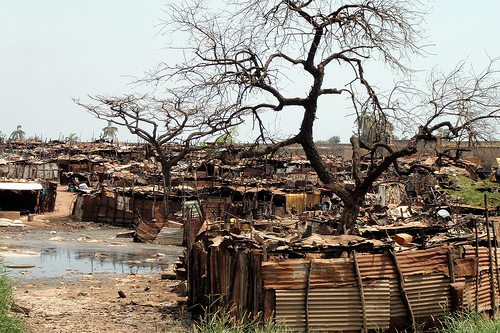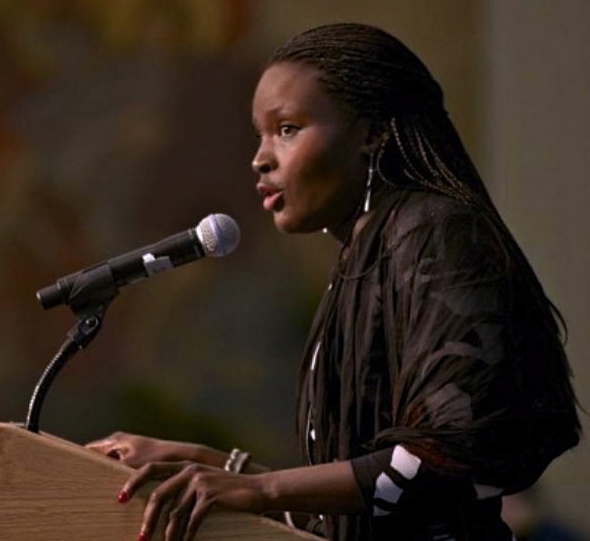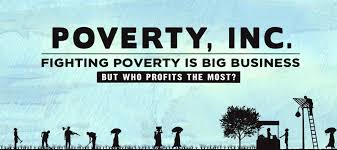The methods of the poverty aid industry reflect their prejudices against faith in God, freedom and entrepreneurship - the very things that have created the wealth of the West. The effects of this hypocrisy is catastrophic both culturally and economically for the poor countries of the world.

I have just returned from the Acton Institute annual conference, called Acton University. The Acton Institute exists to promote a free and virtuous society characterized by individual liberty and sustained by religious principles.
It is easy to believe that groups that convene to discuss free markets and business are all well-to-do business people talking about how to make lots of money. This couldn't be further from the truth at Acton. The focus is almost exclusively on how to help the poor and how to promote a society in which all people flourish and all ways. There were many talks on the promotion of a culture of beauty for the good of the souls of all, for example. These are things that are effect rich and poor alike and are vitally important.
What struck me this year is not just that Acton not only offers a solution to poverty and human flourishing around the world; but that it might well offer the only way. This is a solution that trusts in the abilities of all people to solve their own problems if they have the environment in which they can flourish.
 The opening address by Senegalese entrepreneur Magatte Wade who was urging people to stop giving money to NGOs and charities that channel fund to the developing world. They are (usually) well intentioned, but their effect on the developing world is to make the problem worse. Magatte was scathing, also about the influence of celebrity philanthropists who parachute into a situation, have the photo shoot with smiling children and then disappear. The effect is damaging to the culture because the paternalism that drives it tends to tell the people themselves that they can't create wealth themselves and need handouts from the West.
The opening address by Senegalese entrepreneur Magatte Wade who was urging people to stop giving money to NGOs and charities that channel fund to the developing world. They are (usually) well intentioned, but their effect on the developing world is to make the problem worse. Magatte was scathing, also about the influence of celebrity philanthropists who parachute into a situation, have the photo shoot with smiling children and then disappear. The effect is damaging to the culture because the paternalism that drives it tends to tell the people themselves that they can't create wealth themselves and need handouts from the West.
The evidence on the hopelessness of the West in their paternalistic approaches to fighting poverty in the last 50 years is overwhelming. Haiti, for example, has about the lowest standard of living in the world, and yet it has more NGOs (and I'm guessing, more high profile celebrity visits from nearby USA) per head of population than any other country in world.
The evidence is that what people need is personal freedom and the environment to create business. In additions there needs to be a legal framework that helps rather than hinders this entrepreneurial spirit where it exists. This means, on the whole, governments and government organizations should cease trying to impose answers on the poor, rather they should try to encourage the environment in which the people themselves create the wealth.
If there is one thing that can be done in these countries, Magatte, told us, it is to help change the legal environments so that it is easier to do business. Education about this is part of it. There is an index listed by the World Bank called Ease of Doing Business. This index does not give the whole story. What this rating does not reveal are the intangible aspects of a society that will drive the entrepreneurial spirit most powerfully, faith and freedom. What it does tell us is that if the necessary aspects of a society are present then the legal framework in that country will not stifle development. Nevertheless, it is revealing I think to look at the correlation between ease of doing business and poverty in any particular country.
Magatte was quick to point out that the businesses she wants to see are those that Westerners want to see - any that offer real jobs, including global businesses not just 'micro-invesments'. All these specialist types of investment and business models come out of the development industry too. It's not so much that they are bad things in themselves, but they are pushed largely because they are seen as forms of entrepreneurial activity that do not offend the prejudices of the development workers who on the whole, to put it simply, as Magatte told us, 'hate business'. And again, the losers here are the poor themselves who are cut off from the whole range of conventional investment models.
Furthermore, the assumption that where business flourishes, the human spirit is depressed is simply false. The conditions for entrepreneurship are the same as those for overall human flourishing - faith and freedom, the conditions for greatest entrepreneurial activity benefit the whole human person, body and soul! This is not just about money, but when you're poor, it must include money.
The cultural and economic effect of the current aid model is to perpetuate the values of the aid workers, which are characteristic of the West, and to keep the West richer relative to those those countries in which they operate. It is another form of Western imperialism.
At the same conference was screening of a film produced by Acton, Poverty, Inc. which is now on wide release (and is just available on Netflix). Magatte appears in this film. This film, which has won many awards and has been praised by many from both the political left and the political right, supports Magatte's account. I would recommend all to watch it.


